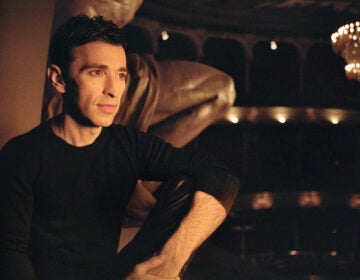International competition helps SCH Academy students develop their ‘inner-scientist’
Thirteen high school students at Springside Chestnut Hill Academy are crossing their fingers as they wait for the finalists to be announced for this year’s Spirit of Innovation Challenge.
The international competition, sponsored by the Conrad Foundation, asks students to develop innovative products – using their knowledge of math, science, engineering and technology – that address both local and global problems. The possibilities are unlimited, but projects must speak to sustainability.
SCH Academy students submitted five projects for consideration. Their entries, all developed as part of an Oceanography class, tackle a variety of issues: ocean-based oil spills, mercury pollution, sustainable agriculture, recycling plastics and boat accidents involving manatees.
Each proposal, submitted earlier this month, included, among other things, a business plan, technology report, technical drawings and a promotional video.
Submissions
Sydney Young and Lee Nagy, both juniors, developed a smartphone application that enables users to chart and monitor their consumption of mercury, a chemical element that can be especially harmful to pregnant women.
The application, which they’ve dubbed “MercuMeasure”, provides general information on a variety of fish species, but also offers the average amount of mercury that’s typically found in those fish depending on a sliding scale of portion sizes.
“It was definitely the most interesting project I’ve had to do for school because it was very real,” said Nagy. “It wasn’t just hypothetical.”
“It’s been a good experience to work on it,” added Young.
A different ocean-dweller inspired the product senior Katharine Phillips and her teammates designed: manatees.
Phillips said many manatees, an endangered species, in the Florida Keys are routinely struck by boats cruising the Atlantic Ocean and other nearby bodies of water. Manatees are often unable to hear an approaching vessel in time to avoid an accident – they simply lack the range.
As a remedy, Phillips and her team developed the “Magical Manatee alert system.” The device relies heavily on sonar technology to warn manatees when boats are near and vice versa . A GPS component would also show boaters how close they are to a manatee.
“If we want to keep this population alive it’s really important to protect them,” said Phillips. “Hopefully if this project was invented it would be able to be used in all areas of the world and in all types of boats.”
Phillips said the experience has given her the opportunity to test out her skills as an entrepreneur. It’s been a rewarding effort.
“We’ve gotten more out of it than just a test grade,” she said.
The rest of the SCH Academy cohort includes: Katelyn Jackson, Anna Kuo, Devon McAllister, Mia Gold, Justin Bender, Cole Hoffman, Elliot Plotkin, Alex Farley, Mac Concannon, Emily Eisler
A valuable lesson
Teachers Ann Keiser and Kim Eberle-Wang, along with a collection of mentors, helped guide the students’ work from idea, to abstract, to final proposal over the course of about a quarter of the academic year. It’s the first year SCH Academy students entered the competition.
“It works well for an elective like this because it allows them to figure out something that they’re really interested in and then dig deeper into that and then actually have a stake in it,” said Keiser.
Finalists will be selected in March. Only 20 teams will be selected from a field of 130. Those selected will get the chance to meet with NASA scientists and possibly take home a $10,000 prize.
No matter what happens, Eberle-Wang said the competition provided students with the opportunity to explore real-world applications of their textbook pages.
“It’s not just about opening a book and doing homework,” said Eberle-Wang. “It’s about learning how to learn and learning why it’s important and learning that there are a lot of resources out there to continue developing your inner-scientist,” she said.
WHYY is your source for fact-based, in-depth journalism and information. As a nonprofit organization, we rely on financial support from readers like you. Please give today.




